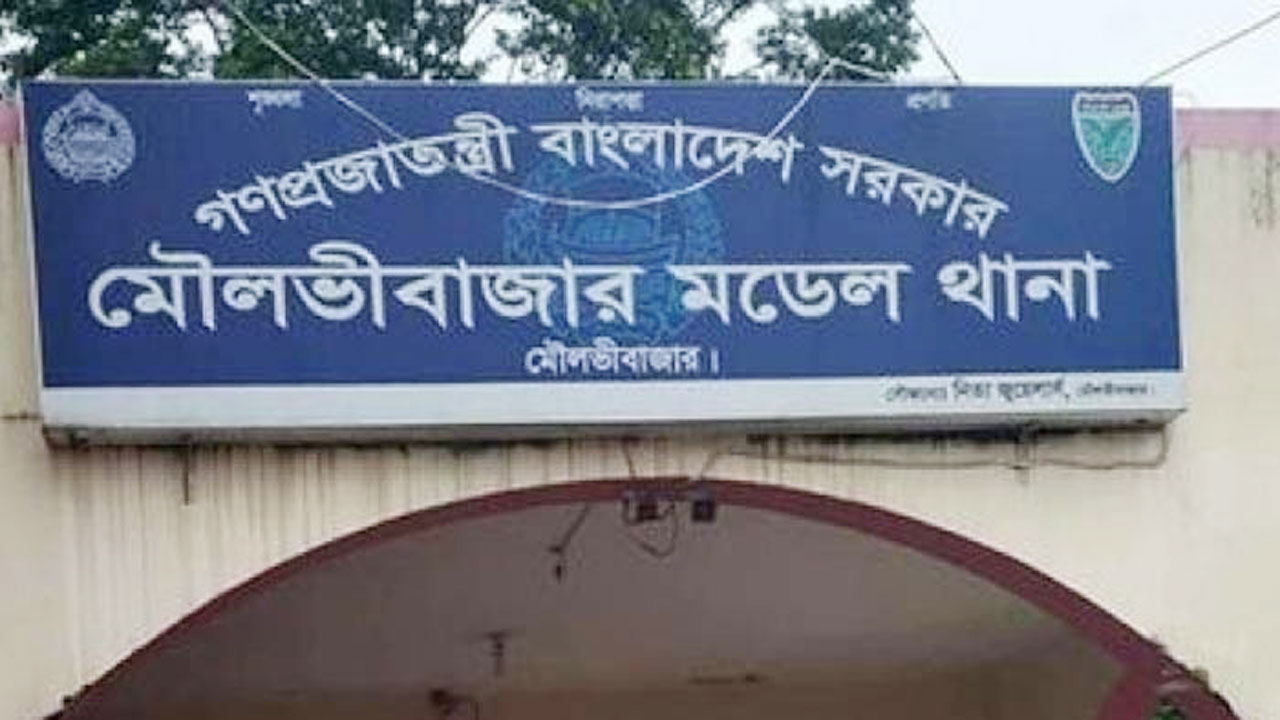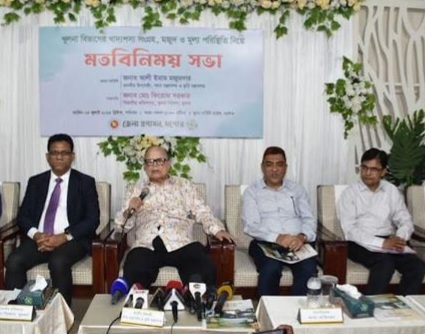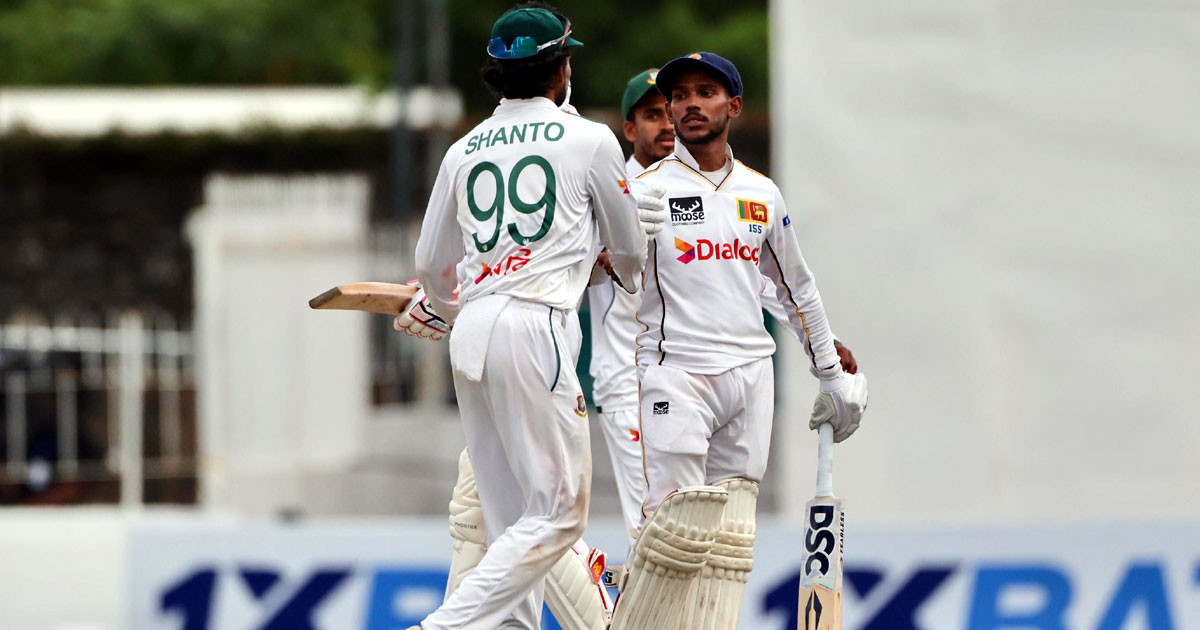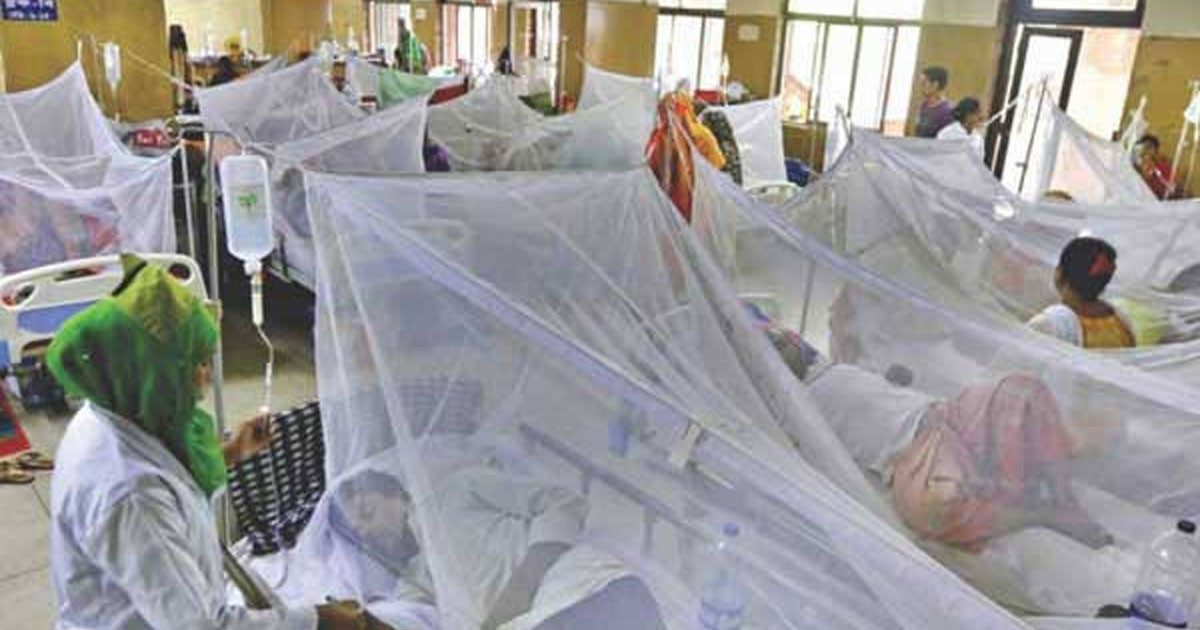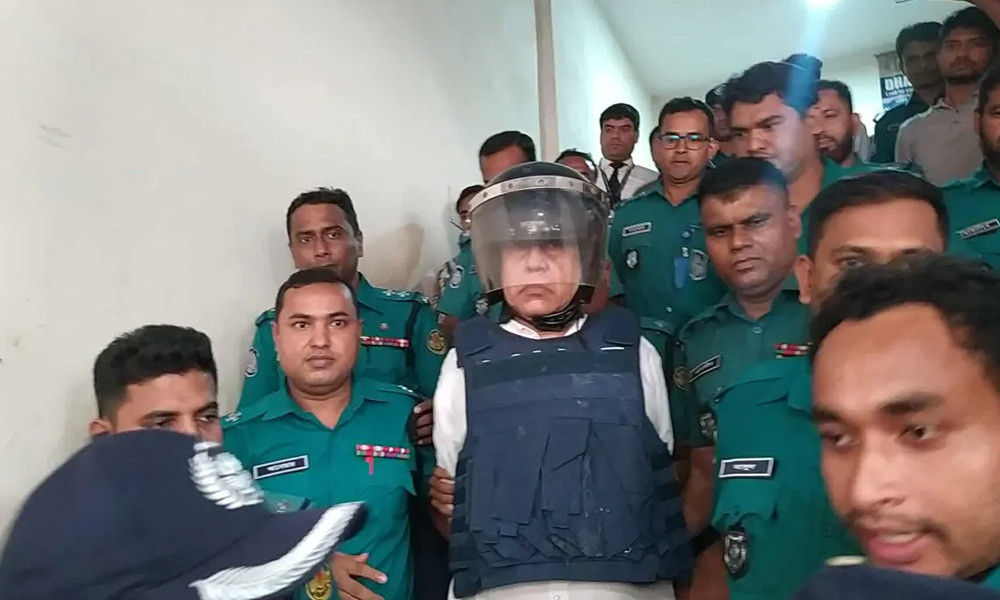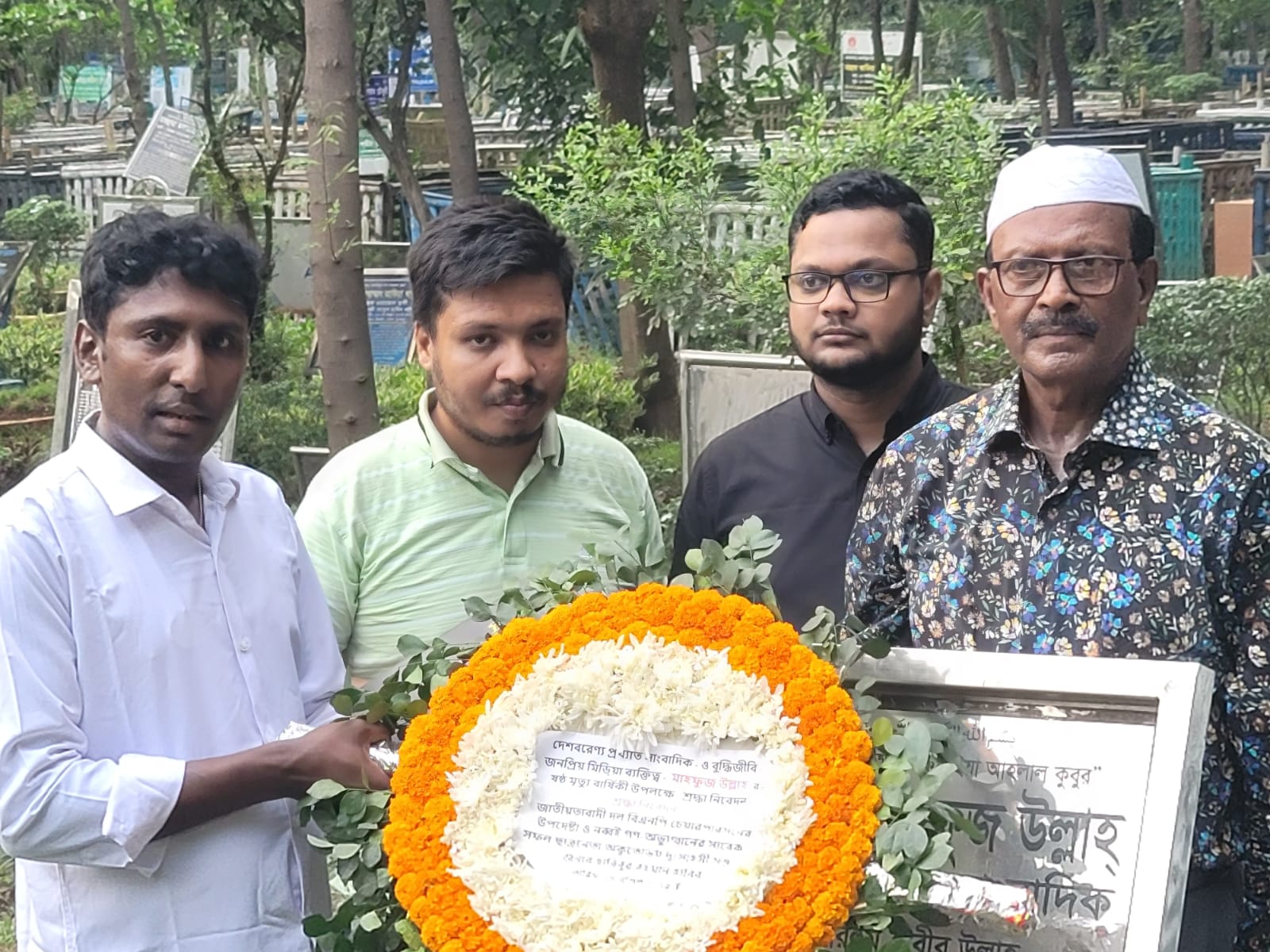
The sixth death anniversary of Mahfuz Ullah — celebrated journalist, media personality, writer, columnist, and political analyst — was solemnly observed on Sunday with prayers, Quran recitation, and wreath-laying at the Mirpur Intellectuals’ Graveyard in Dhaka.
The event, organized by the Mahfuz Ullah Memorial Council, was attended by Habibur Rahman Habib, Advisor to BNP Chairperson Khaleda Zia.
Paying tribute to the late journalist, Habib said, “Mahfuz Ullah Bhai was a uniquely gifted journalist. His vast knowledge, dignified personality, eloquence, and distinguished family heritage made him a rare individual. I had the honor of knowing him personally. His contributions, including his biographies of Begum Khaleda Zia and martyred President Ziaur Rahman, continue to be widely admired.”
Expressing his disappointment, Habib added, “I had expected many more to be present here today. Apart from a few, the absence of many is disheartening. If we fail to honor our eminent personalities, how can we expect to preserve their legacies?”
Mohammad OLID Bin Siddique Taluqder, Acting Editor of Bangla Post and President of the Mahfuz Ullah Memorial Council, presided over the ceremony. In his remarks, he said, “Mahfuz Ullah was a fearless, honest, and principled journalist. Even when he disagreed, he did so respectfully. Such integrity has become increasingly rare in today’s media landscape.”
A brief biography presented at the event highlighted Mahfuz Ullah’s distinguished career. He earned master’s degrees in Physics and Journalism from the University of Dhaka. As a student leader, he played a key role in the 11-Point Movement during the 1960s.
Beginning his journalism career with the founding team of Weekly Bichitra, Mahfuz Ullah later served in several international roles, including in China and at the Bangladesh Deputy High Commission in Kolkata. He also taught at the University of Dhaka’s Department of Mass Communication and Journalism.
Widely recognised as a pioneer of environmental journalism in Bangladesh, Mahfuz Ullah authored more than 50 books in Bengali and English, many of which are housed in prestigious university libraries worldwide.
He was the grandson of Comrade Muzaffar Ahmad, a founder of the Communist Party of India, and his elder brother, Mahbub Ullah, was also a notable student leader. Mahfuz Ullah leaves behind three children.
Speaking candidly, Mohammad OLID Bin Siddique Taluqder expressed his sorrow, saying, “It pains me to witness how, during the autocratic rule of the Awami League and beyond, some individuals exploited Mahfuz Ullah’s name and stature for their own gains, living lavishly while reducing his legacy to a mere symbolic shield. Now, six years after his passing, many have shamefully forgotten him.”
He added that the Mahfuz Ullah Memorial Council has launched a three-day program to honor his memory, with today’s events marking the first phase through prayers, Quran recitation, and a visit to his grave.
The program was conducted under the leadership of Taluqder and organized by RJ Suhil Irfan Kaushik, Organizing Secretary of the Council.
The chief guest Habibur Rahman Habib also addressed the gathering, alongside attendees including Masum Ahmed, Touhidul Islam, Maruf Hossain, Rajib Ahmed from Swadesh Barta, Plabon, and Enamul Haque Bin Hadi.
The prayer session was led by Maulana Ibrahim Khalil, Imam of the Intellectuals’ Graveyard Mosque.
In an emotional reflection,
Taluqder said, “Since the mass uprising, it feels as though Bangladesh lost one of its bravest sons when Mahfuz Ullah passed away. Despite millions of voices, no one today matches the courage and conviction with which he spoke.
True warriors like him are born only once in a generation — just as a rare flower blooms in a garden after centuries, Mahfuz Ullah was a rare gift to this nation.”
He concluded, “None of us are eternal. I, too, will one day depart this world. But what remains forever is truth, courage, ideals, and principles. In the struggles of tomorrow, future generations must find inspiration from the lives and legacies of heroes like Mahfuz Ullah. We are committed to preserving and promoting his invaluable contributions for posterity.”



